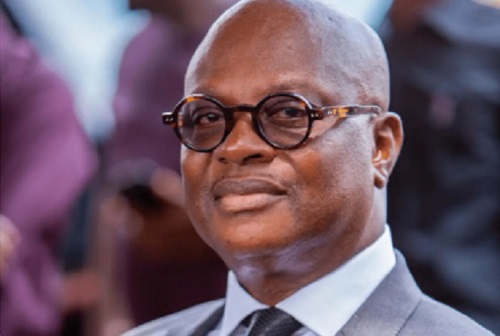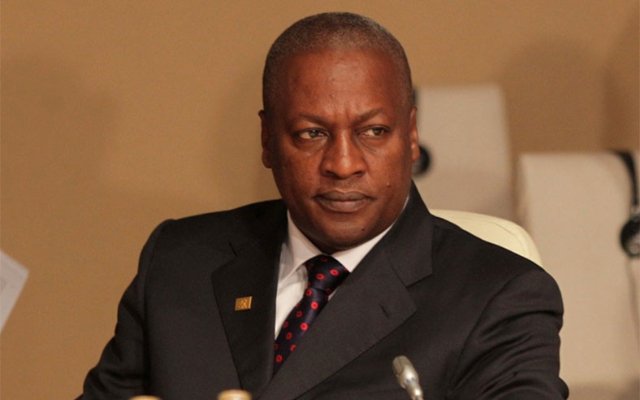By Dr. Lola Dare
Africa, where coronavirus disease (COVID-19) cases have surged to nearly 6,000 in recent days, faces a potential human and economic catastrophe because of its particular vulnerabilities. While some countries, lenders, and organizations have stepped up to ease the economic burden of the pandemic, as a community physician with more than 30 years of experience in epidemiology, public health, social protection, and international development, I am concerned that the pandemic will settle in Africa, especially amongst the poor and hard to reach. The impact could go well beyond containment of the virus to a total disruption of our economies with severe consequences on social protection, particularly for women and children. Context-specific interventions are urgent, with an initial focus on containment and then on recovery and sustainable investments in public health and social protection.
In sub-Saharan Africa, community health is already underfunded by an estimated $2 billion every year, according to USAID. Ultimately, the real battles in every pandemic are fought at the community level, and this is especially true in Africa, where people live so close together in urban areas and where the first point of contact for health care is often the community health worker.
Of immediate critical need is equal access to personal protective equipment (PPE). Lack of PPE was partly to blame for the deaths of more than 500 health care workers in Guinea, Liberia, Nigeria, and Sierra Leone during the West Africa Ebola epidemic. Dr. Tedros Adhanom Ghebreyesus, director-general of the World Health Organization (WHO), called the lack of PPE an urgent threat that can only be solved with international cooperation and solidarity. “When health workers are at risk, we are all at risk,” he said in a press briefing on March 27. “Health workers in low- and middle-income countries deserve the same protection as those in the wealthiest countries.”
The WHO in early March warned of severe and mounting disruption to the global supply of PPE, caused by rising demand, panic buying, hoarding, and misuse. It said supplies can take months to deliver and market manipulation is widespread, with stocks frequently sold to the highest bidder. Few African countries can compete in such a market.
It is also difficult for African countries to compete against more developed nations when it comes to health worker salaries. Now is when African countries need their health professionals the most, especially when we have already lost so many to more lucrative and stable jobs abroad and when we are likely to lose more to COVID-19 infection.
The U.S. State Department on March 26 appealed to foreign health care workers to apply for a U.S. visa. The United States has 25 doctors for every 10,000 people, compared to 4 in Nigeria, 2 in Kenya, and 1 in the Democratic Republic of the Congo, according to the WHO.
While we do not yet know exactly how the COVID-19 pandemic will play out in Africa, we have some indications. Relatively, the continent’s population is young, but many have weak immune systems associated with TB, HIV/AIDS, malaria, diarrheal diseases, and malnutrition, as well as the evolving menace of non-communicable diseases such as diabetes. Compounding these vulnerabilities are fragile primary health care systems that could easily become overwhelmed. More people died of malaria, TB, HIV/AIDS, and maternal complications during the West Africa Ebola epidemic than those who succumbed to the disease itself because people either could not get care or feared seeking it.
While widespread testing, social distancing, and hand washing help stem the spread of the COVID-19, there is no one-size-fits-all solution. Many Africans lack access to running water to practice frequent hand washing, and they cannot practice social distancing for long periods. Some people eat only what they earn a day, so if they don’t work for 12 days then they don’t eat for 12 days.
Bloomberg Economics estimates that the pandemic will cost the world $2.7 trillion. But this figure does not take into account African losses because of unavailable data. Without international solidarity to address our public health and social protection needs, the continent faces a dire future—one that threatens to keep COVID-19 and other emerging viruses circulating throughout the world. The international community must ensure equal access to PPE, support health workers, and mitigate the impact on the poor and the vulnerable by providing provide a long-term COVID-19 rescue and recovery fund for public health and social protection. The time for this is now. As we have all seen, every day, every hour counts.
Dr. Lola Dare is a community physician and president of the African-led social enterprise CHESTRAD Global. CHESTRAD Global is member of the Primary Health Care Strategy Group, a global coalition of civil society health advocates convened by Population Action International.

 Boss Of The Week4 days ago
Boss Of The Week4 days ago
 The Oracle5 days ago
The Oracle5 days ago
 Opinion4 days ago
Opinion4 days ago
 Middle East4 days ago
Middle East4 days ago
 Islam6 days ago
Islam6 days ago
 National4 days ago
National4 days ago
 Middle East4 days ago
Middle East4 days ago
 Headline4 days ago
Headline4 days ago














